Note: Abdourahman Waberi was WINNER of the Grand Prix Litteraire d’Afrique Noire in 1996 and WINNER of the Prix Biennal of PEN France in 1998.
“[According to the Indian philosopher Tagore], ‘an open book is a talking brain; closed, a waiting friend; forgotten, a forgiving soul; destroyed, a weeping heart.’ Replace ‘book’ with ‘earth’ and you’ll have some idea of the magical spells hidden in this land where man was not born of Adam but of little Lucy.”–Awaleh
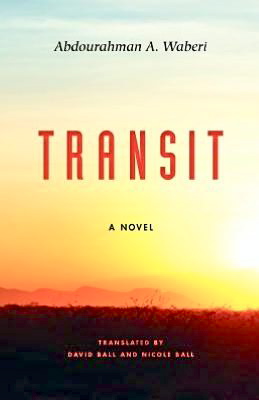 When Awaleh, the elderly grandfather of this novel, is musing on the earth, its mysteries, and its spells, he is reflecting on the ancient history of his country, now known as Djibouti. Adam and Eve, for him, are a relatively recent concept, reflecting time as recorded in the Bible. “Little Lucy,” by contrast, is a 3.2 million-year-old hominid, a fossil who was “waiting” in the nearby Rift Valley to be discovered by paleontologist Donald Johanson in 1975. Lucy is one of the earliest of hominids – and represents a unique species, Australopithecus afarensis. Fully grown, she was only a bit more than three feet tall, but she is more closely related to the genus Homo than any other fossil discovery made to date. For Awaleh, that kind of long view of history is what matters most, and he spends much of his time in lyrical contemplation of nature and the beauty within it, even as he yearns for the nomadic past.
When Awaleh, the elderly grandfather of this novel, is musing on the earth, its mysteries, and its spells, he is reflecting on the ancient history of his country, now known as Djibouti. Adam and Eve, for him, are a relatively recent concept, reflecting time as recorded in the Bible. “Little Lucy,” by contrast, is a 3.2 million-year-old hominid, a fossil who was “waiting” in the nearby Rift Valley to be discovered by paleontologist Donald Johanson in 1975. Lucy is one of the earliest of hominids – and represents a unique species, Australopithecus afarensis. Fully grown, she was only a bit more than three feet tall, but she is more closely related to the genus Homo than any other fossil discovery made to date. For Awaleh, that kind of long view of history is what matters most, and he spends much of his time in lyrical contemplation of nature and the beauty within it, even as he yearns for the nomadic past.
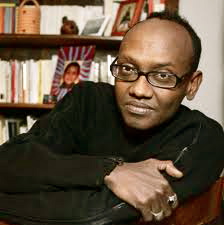
For him, the country’s many occupations by foreign invaders, its wars and famines and bloodshed, are proof that “to predict is heresy; tomorrow is entirely veiled by the will of the Majestic One…[but] you’ve got to smile. Even in your death throes you must hold back your drool; that is what a saying still in use today tells us.” Throughout the novel, it is Awaleh who provides both the historical anchor and the soaring flights of a man looking for a once-magical world which has vanished.
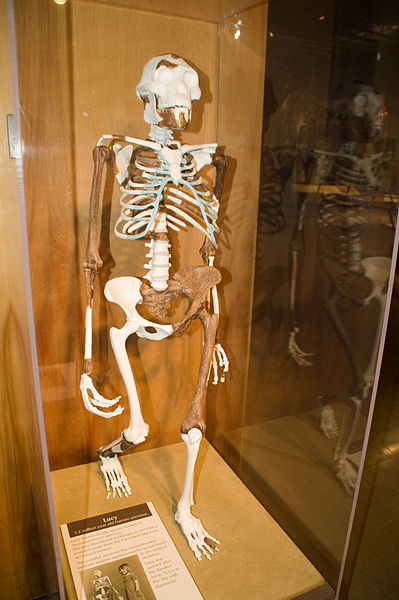
Reconstruction of the "Lucy" skeleton, the first Australopithecus afarensis, closest hominid to Homo.
In this thought-provoking and often enigmatic novel, Abdourahman Waberi reflects on the series of horrors – political, economic, religious, and environmental – which have dominated his country in recent years, using five different speakers, each of whom comments on his life, past and present, often switching to other points of view within a single monologue. The novel opens at Roissy Airport (Charles de Gaulle), where Bashir Assoweh, an uneducated, adolescent veteran of Djibouti’s civil war is hoping for admission into France, and asylum. Drafted to fight for his government against rebels, he has now been demobilized but never paid for his efforts. The war is over – “a tie game” – but he no longer has a home or family to return to, forced to spend his nights camping out in a tent beside the water, carousing with other young veterans, committing minor robberies, and smoking dope. Standing at Roissy, beside a middle-aged intellectual named Harbi, who will almost certainly be granted asylum because he has been an active opponent of the regime of Ali Arif, Bashir is assumed to be Harbi’s son. Neither of them corrects the French at Immigration. Abdo-Julien, Harbi’s real son, is not with Harbi, his whereabouts unclear, and Alice, Harbi’s French wife, is also not present.
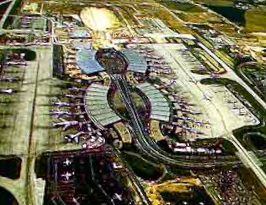
Roissy/DeGaulle Airport
Gradually, the backstory fills in as each character’s monologue expands and allows the reader to make connections among the various speakers, though some of these connections are tenuous. Of particular interest is Alice, Harbi’s white wife, who met her husband at a school of journalism in France, attracted his attention, then came with him to Djibouti to live. She does not miss France, and its “sugared crepes or crepes flambé.” In Djibouti, however, she finds that “You don’t really know who you are, or who they are…Everything is intoxicating: visiting the country, combing the city. Real life, right?…Soon, they put you in a ready-made box: you’re the mixed couple people look at suspiciously.” Though she and her husband both manage to get jobs in Djibouti (she, as a teacher), they are still regarded as a “domino couple.”
Harbi indicates while waiting at Roissy that his wife and son, “who used to travel along with us in spirit, are now “lost in the bowels of [the] Airport,” and he feels guilty. “I left my heart at home,” he says. Then he remembers an event from his early childhood, while walking with his aunt, when he passed a military patrol. “Like a chrysalis about to burst, the question popped out instantly:
‘Who are these people?’
‘The French, our colonizers.’
‘Why are they here?’
Because they are stronger than we are.’ ”

Child Soldier
Eventually, Bashir tells about his own life and why he changed his family name from Assoweh to Binladen. In Djibouti, he had noticed that “you can say Binladen and everybody drop dead and panic like I’m real kamikaze they stop in front of barbwire and sambags of the American Embassy in Djibouti. Binladen, dunno who he was before…[Now] they say, yell ‘Long live Binladen’ everywhere, that’s how I know his name, then stop right away or else it Gabode prison for everybody, mamas, uncles, kids, everybody.” Eventually, through Bashir, the reader learns about the various factions in favor and opposed to the government, the intrusions of the Germans, French, and US as the situation in the capital deteriorates and threatens the rest of the world, arms trafficking, the plentiful supply of drugs of all kinds, and about the child soldiers who have been drafted by the government. Of the children, Bashir says, “Little soldier, he too-too-dangerous all the time cause he mix up game and battle. He mix life and death with big smile on his face.”
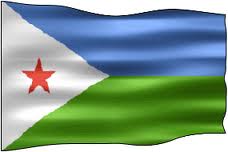 Each of the speakers has his own style of monologue, the most difficult for the translators, David and Nicole Ball, obviously being that of Bashir, who speaks in slang which does not translate easily. For the reader, however, none of the monologues is easy or completely clear, and all have flashbacks and changes of point of view within. The recognition of a plot comes gradually as the details from different time periods sort themselves out, and when the reader reaches the end of the novel, the author has an Epilogue from Harbi which addresses the universal refugee situation: “We are grains of sand washed up onto someone else’s desert, and that’s what we’ll always remain…We’ve left our stories, our melodies, our books of magic, and our ancestors behind. The danger awaiting us is this: if you live only in the present, you’re likely to be buried with the present.”
Each of the speakers has his own style of monologue, the most difficult for the translators, David and Nicole Ball, obviously being that of Bashir, who speaks in slang which does not translate easily. For the reader, however, none of the monologues is easy or completely clear, and all have flashbacks and changes of point of view within. The recognition of a plot comes gradually as the details from different time periods sort themselves out, and when the reader reaches the end of the novel, the author has an Epilogue from Harbi which addresses the universal refugee situation: “We are grains of sand washed up onto someone else’s desert, and that’s what we’ll always remain…We’ve left our stories, our melodies, our books of magic, and our ancestors behind. The danger awaiting us is this: if you live only in the present, you’re likely to be buried with the present.”
Also by Waberi: PASSAGE OF TEARS, a more traditional novel than this one.
Photos, in order: The author’s photo is from http://www.daad.de
The Lucy skeleton, found by Donald Johanson in the Rift Valley of present day Ethiopia (1975), is the closest hominid to man. Though fully grown, she was only about three feet tall. http://en.wikipedia.org
Roissy/DeGaulle Airport: http://www.historycentral.com
The child soldier illustrates another review of this novel here: http://www.warscapes.com . Many of the members of the advisory board of this site are authors, including several from Africa.
The flag of Djibouti appears on http://africawiki.wikispaces.com
ARC: Indiana University Press
